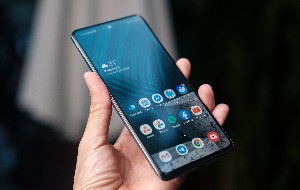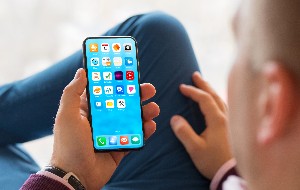Table of contents
- How to Use Your Social Security Number
- When to Provide Your Social Security Number
- 10 Tips on How to Protect Your Social Security Number
- 1. Don't use your SSN as a password
- 2. Don't give it out to strangers
- 3. Shred mail and documents with personal details
- 4. Be careful sharing through electronic devices
- 5. Monitor your bank and credit card accounts
- 6. Consider an identity protection service
- 7. Memorize your social security number
- 8. Keep your SSN in a safe place
- 9. Beware of phone and email scams
- 10. Create strong passwords
How to Use Your Social Security Number
Your Social Security number (SSN) is one of the most personal and critical pieces of identifying information you own, so you should treat it with great care. Store your original social security card somewhere safe, such as in a locked filing cabinet at home – don’t carry it with you in your wallet or purse.
There’s essentially no situation in which you’ll need to present your SSN card to someone in daily life. And be picky about who you share the number with, because there are few reasons to ever share your SSN with anyone other than government agencies, banks and other financial institutions.
When to Provide Your Social Security Number
We’re all used to handing over whatever personal information is requested when you create an account or conduct some sort of transaction with a business. But do you have to give out your social security number to anyone who asks for it? No – the reality is that most companies that might ask for your SSN don’t actually require it – they might simply be using it as a convenient, if highly insecure, means of tracking or identifying you.
The only businesses that need to know your SSN are those that report information about you to the Internal Revenue Service. It is generally safe to provide your social security number to your bank and investment firms, and well, that’s about it. So if your bank asks you for your SSN, provide it – if any other business requests it, ask what they need it for before providing it.
10 Tips on How to Protect Your Social Security Number
For the most part, keeping your social security number safe from those who would use it to steal your identity or gain access to your personal accounts is easy, once you understand how valuable the number is. Here are 10 tips to protect your social security number from being used by criminals.
1. Don't use your SSN as a password
One of the most important things you can do is to avoid using your social security number as if it were a handy username or password. That includes using your SSN on its own or in combination with other characters. In fact, it’s a bad idea to incorporate any sort of personal number, like your birthday, anniversary, or phone number into your passwords.
2. Don't give it out to strangers
This should go without saying, but never give your SSN to any party unless you have some kind of relationship with them and understand why they are asking for your number. Never give it to “cold call” telephone solicitors or online forms. If you’re creating an account with a new business and they want to use your SSN as a means of identification, offer them a different form of identification – like your driver’s license or a utility bill – instead.
3. Shred mail and documents with personal details
You might be used to simply throwing all your mail in the trash, but it’s risky to discard paper that contains sensitive personal information like account numbers and your social security number. Purchase an inexpensive paper shredder and use it regularly to destroy anything that might help thieves steal your identity or gain access to financial accounts.
4. Be careful sharing through electronic devices
Some communication apps, like WhatsApp and Signal, are end-to-end encryption, making them truly secure for transmitting sensitive information like your SSN. Many other text and email apps are easily intercepted or hacked, though, which means you should avoid sharing your SSN electronically. In general, avoid sending your SSN via email or text. Giving your social security number over the phone or in person is a much better idea.
5. Monitor your bank and credit card accounts
While you should take every precaution to protect your SSN, also keep an eye on your financial accounts to look for evidence that you’ve already been compromised. In other words, check your balances regularly – every month – and configure your bank to send you text alerts about withdrawals, if it offers that option. That way you’ll know right away if your SSN is used to access your account.
6. Consider an identity protection service
There are a variety of identity protection services which can keep close tabs on your critical personal information for you automatically, monitoring changes in your credit status, signs of password breaches, alerts about stolen SSNs and other personal data breaches. These services can offer peace of mind for about $10-$15 per month. Services include LifeLock, Identity Guard, and IdentityForce.
In addition, Clario can offer robust protection on your Android or iPhone. After installing and purchasing Clario, it’ll alert you about malicious websites you attempt to visit and block potentially dangerous ads, all while actively protecting you from identity theft.
7. Memorize your social security number
Commit your SSN to memory so you don’t need to carry it around with you. You won’t need to know your number often, but it’s something you’ll need to produce from time to time literally for your entire life, from your teen years onward. Like your home address, it should be something you can recite without thinking about it, and certainly without referring to something you’ve written down.
8. Keep your SSN in a safe place
Secure your original SSN card so it can’t be easily stolen. A locked filing cabinet is a good place to store it, as well as a home safe or even a safety deposit box, if you have one of those for other purposes. Wherever you store it, remember where you’ve put it in case you ever need to produce the original card.
9. Beware of phone and email scams
You already know not to give your SSN to strangers, but it can sometimes be hard to know what the right thing to do is when you get a phone call or email from someone claiming to represent your bank or a government agency like the IRS. So is it safe to give your social security number over the phone? No – unfortunately, these are often criminals hoping to convince you to give your social security number over the phone (along with other personal information like critical account information and passwords, and you should always treat unexpected calls and emails as if they are scams.
No real government or banking representative will ever ask you for your SSN over the phone or in email. If in doubt, call them back using an official phone number you didn’t get directly from the phone call or email. For example, look up your bank’s phone number from a recent statement, and find out if the call you received is authentic.
Clario is an ideal companion for navigating the challenging world of these email and phone scammers. Clario’s data breach monitor scans the dark net for all sorts of leaked personal information, including your SSN, medical records and credit scores. If it ever uncovers anything, Clario notifies you immediately so you can protect yourself and your identity from scammers.
10. Create strong passwords
Finally, the foundation of any personal security plan is to surround yourself with strong passwords. Your SSN might be exposed in numerous online accounts, such as banking and government websites. A weak password – or using the same password over and over on a lot of sites – can allow hackers and scammers an easy way to steal your personal info and your identity.
Make sure every website you use has its own unique password. This way, if one account is ever compromised, hackers can’t unlock other sites just by trying the same password elsewhere. And the longer your password, the better – make sure it’s at least 12 to 14 characters long, with a mix of upper and lowercase letters, numbers and symbols. Don’t use anything personal, like your name, birthday, SSN, or pet’s name in the password.
With the ever-present risk of scammers trying to steal your SSN, you need all the help you can get. Clario’s unlimited VPN encrypts your activities online, makes you anonymous and protects your data from online theft. If you want to enhance your security and privacy online, take advantage of Clario today.


